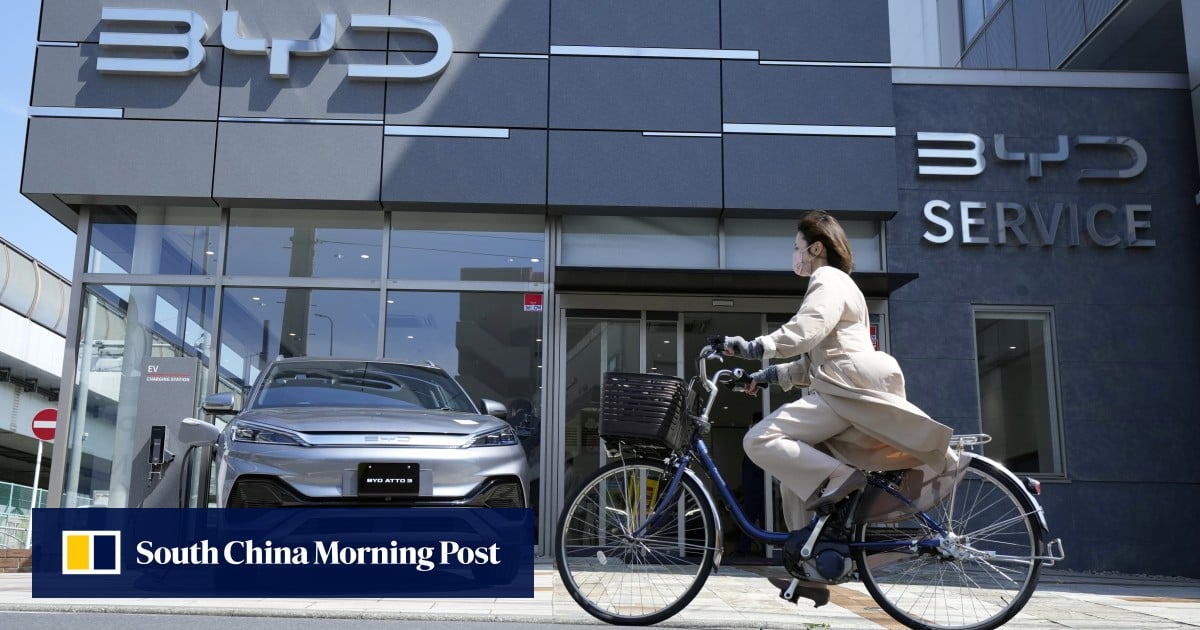
Advertisement
The carmaker sold just 5,300 vehicles between January 2023 and June this year despite opening its 45th sales location in Japan, introducing a fourth EV model and touting plans to debut an electric kei car – a popular style of street-legal microcar – in late 2026.
The moves have done little to ignite demand, and BYD is now turning to discounts – a practice that has put it front and centre of an industry crackdown in China – to boost sales. The company is offering discounts of up to 1 million yen (US$6,700) that, in addition to government subsidies, can slash sticker prices by as much as 50 per cent. Its Atto 3 retails for just under 4.2 million yen.
Even that makes it an outlier, as Japanese carmakers rarely cut prices. And while discounting has helped make BYD the most popular EV brand in China, the tactic could backfire in Japan because it risks making early buyers feel duped for paying higher prices and hurts resale value, according to Bloomberg Intelligence senior auto analyst Tatsuo Yoshida.
The challenges show the difficulties foreign carmakers face in Japan, where locals favour legacy brands like Toyota Motor and largely eschew battery EVs in favour of gas-electric hybrids. The overwhelming loyalty to home-grown giants has already hammered major legacy marques. General Motors withdrew its Saturn brand after poor sales, while Hyundai Motor is trying once again after abandoning the market in 2009.
Advertisement


